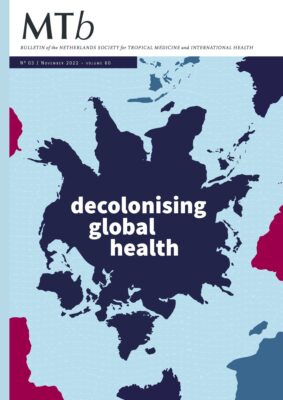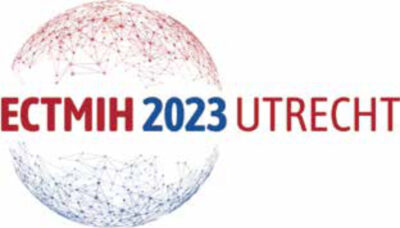
Decolonising Global Health
Editorial
Walking the talk
In We Slaves of Suriname Anton de Kom recounts the history of his homeland – from the early settlements in search of gold, through the era of slave trade and the period of Dutch colonial rule. Today, 159 years after the abolition of slavery in Suriname and 88 years after its first publication in 1934 (in Dutch), the book has lost none of its power. The book is articulate and analytical in its examination of the mechanisms of injustice and inequality; and of the impact of slavery and the colonial system. Chilling are its descriptions of systematic exploitation, and daily life under colonial regime including the brutal punishments. Being autobiographical, it builds on personal experiences to describe how the system worked. As students, De Kom and his peers were caned when they dared to speak the Surinamese language within the school walls. Whilst searching in vain for the names of the rebels of Suriname in the textbooks, the pupils were ‘expected to go into raptures about the rebelliousness of Claudius Civilis and the brave Abjuration of William the Silent’. No better way, De Kom concludes, ‘to foster a sense of inferiority in a race than through this form of historical education’. It took him a long time to free himself entirely from the obsessive belief ‘that a Negro is always and unreservedly inferior to any white’. [1] The story told here – the gruesome and painful history of racism and colonialism – is told with maximum impact. In this edition of MTb, and during the symposium on Decolonising Global Health, we also intend to tell a story. A story of how we can come to terms with this painful past. [2] How we reflect on it, and how we deal with the colonial structures that – despite being formally abolished – continue to linger on in our daily lives, and in our work as professionals working in global health. In his provocative comment, Richard Horton (Editor-in-Chief, The Lancet) challenges us ‘to undertake a more realistic and rigorous analysis of where power lies politically, economically, militarily, and culturally. Changing the names of buildings and removing statues of scientists whose pasts we now deem unacceptable, as important as these symbolic measures might seem, risk becoming illusions of action, veiling the truth concerning new regimes of authority, dominance, and privilege. Decolonisation must mean much more.’ Let’s make it mean more. Enjoy the read and the symposium.
Esther Jurgens, Policy advisor NVTG, Consultant Global Health, estherjurgens@xs4all.nl
References
- We Slaves of Suriname
English edition Polity Press 2022. Translator’s note on the use of terms that express racist attitudes: instead of forcing the terms for race and skin colour into a twenty-first century mold, the translator looked for terms used by De Kom’s equivalents.
- Memorial Year
In November 2022 the Dutch government announced how, during next year’s Slavery Memorial Year (from 1 July 2023 to 1 July 2024), extra attention will be given to our historic involvement in slavery: ‘a very painful, significant, and - until recently - underexposed part of our shared history’
- Offline: The myth of “decolonising global health
Lancet. 2021; 3981673






















































